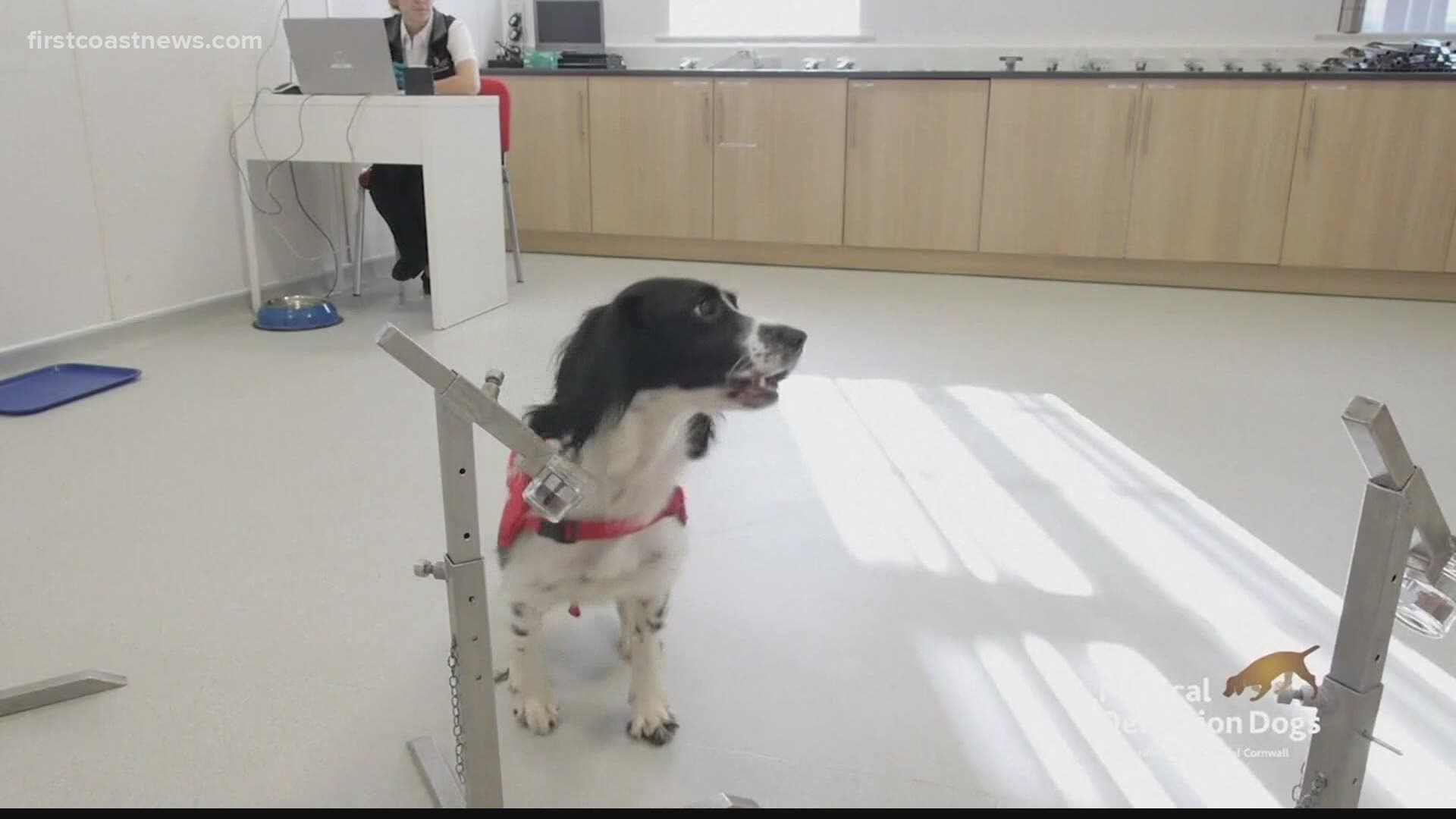JACKSONVILLE, Fla — Dogs could be a new tool in detecting COVID-19 in humans.
In the UK, Durham University has partnered with the charity Medical Detection Dogs and the London School of Hygiene and Tropical Medicine to test their noses against the virus.
Penn Vet also just launched one of the first major studies in COVID-19 canine scent detection.
Now, dog training organizations in Florida are trailblazing efforts to answer the what Dr. Carlene Taylor, an animal-assisted licensed mental health counselor and professor at the University of North Florida, says is the big question,
“Does COVID-19 have a unique marker that a dog could be trained to sniff?” Dr. Taylor said.
At Top Tier K9 in North Florida, owner Jeff Minder thinks they do. He’s working with Lab 19, a group of scientists and other experts, training 70 dogs to sniff out the deadly coronavirus.
Minder trains his dogs with key foundational skills like tracking, scent detection, protection/apprehension and advanced obedience.
Now, he's specifically adding COVID-19 scent detection to the training program.
The dogs are given an element of the coronavirus that Minder trains them to identify.
“The dog learns to identify that separate virus from other viruses and bacteria,” said Minder.
For decades dogs have been trained to sniff out the unique smells that cancer cells emit, and other diseases through the volatile organic compounds that have distinctive odors that cells produce.
VOCs can be unique enough that dogs, with roughly 300 million scent detectors in their snouts compared to humans with only about 6 million scent detectors, can smell but humans can’t.
When sniffing out COVID-19, Minder said, “it’s a single odor that’s different from the rest of the environment,” that he trains his dogs to single out.
However, unlike cancer, COVID-19 is highly contagious.
Though only one dog in the US was reported to have caught the virus, Dr. Taylor notes dogs can catch other coronaviruses, however, she said, there’s no solid evidence dogs can contract the novel coronavirus.
This means COVID-19-sniffing dogs could be a scientific breakthrough.
“It could dramatically change the way that we’re being hampered right now by the threat of the virus,” Dr. Taylor said.
She adds it could provide an opportunity for dogs to help diagnose asymptomatic people quickly, get them treatment, and prevent further spread.

